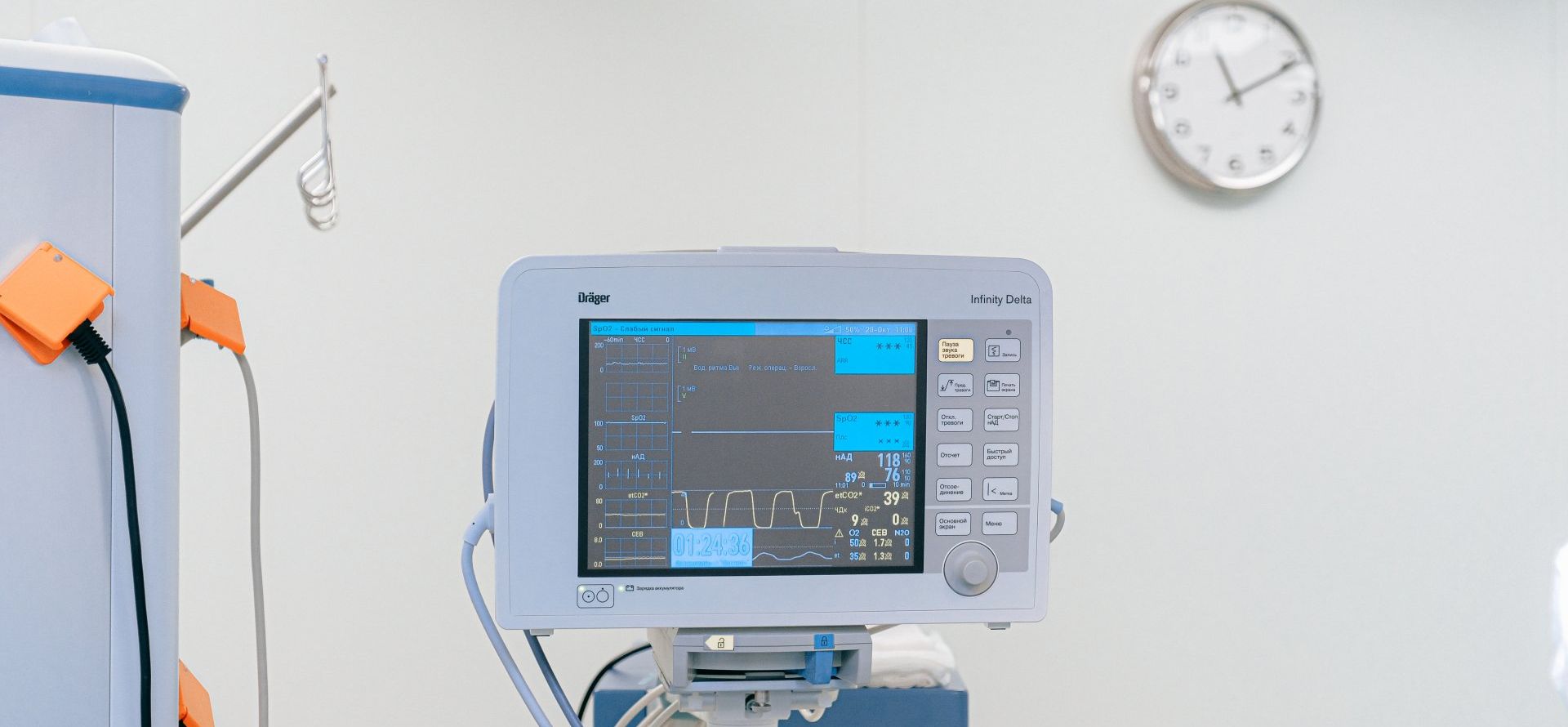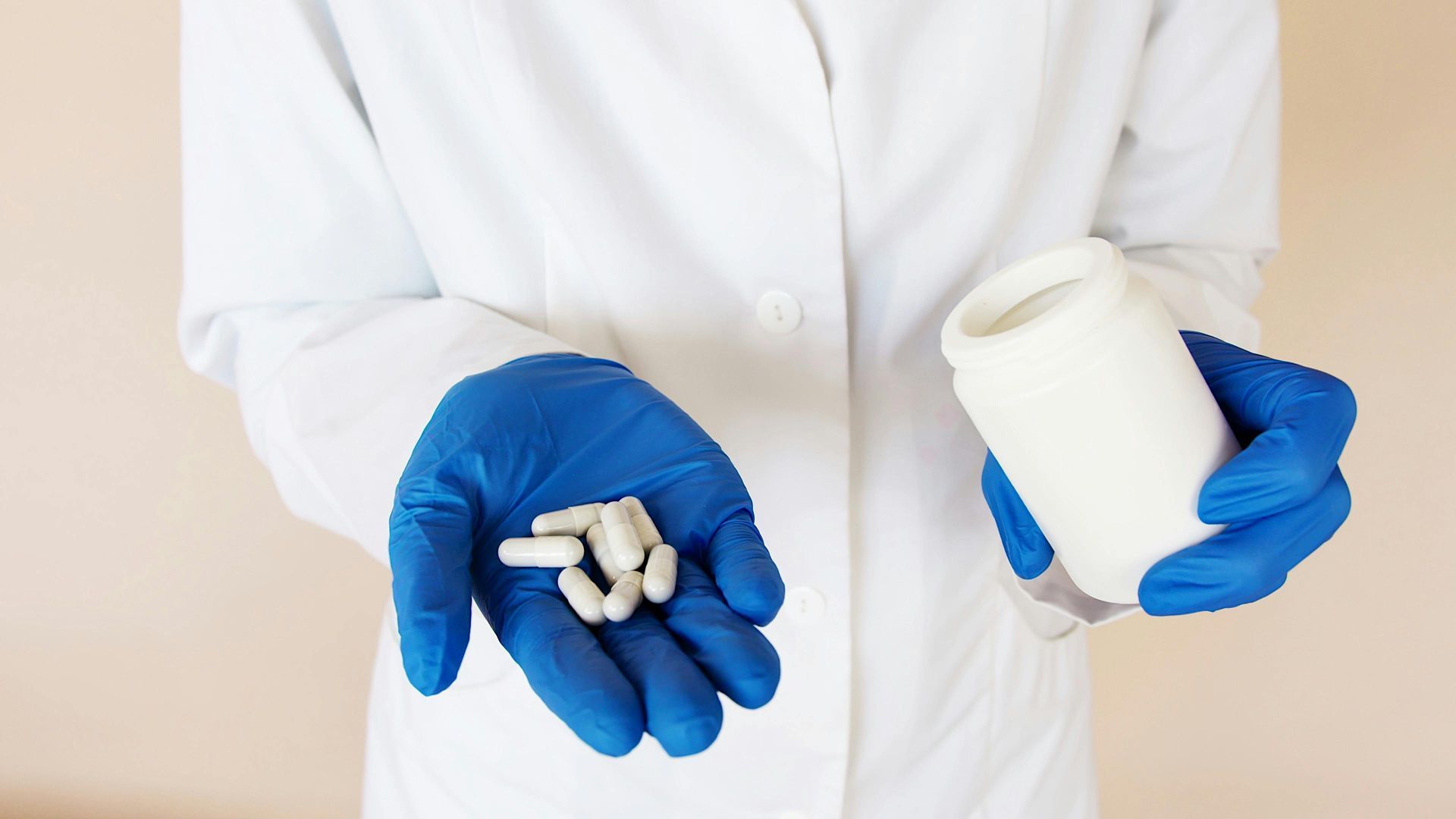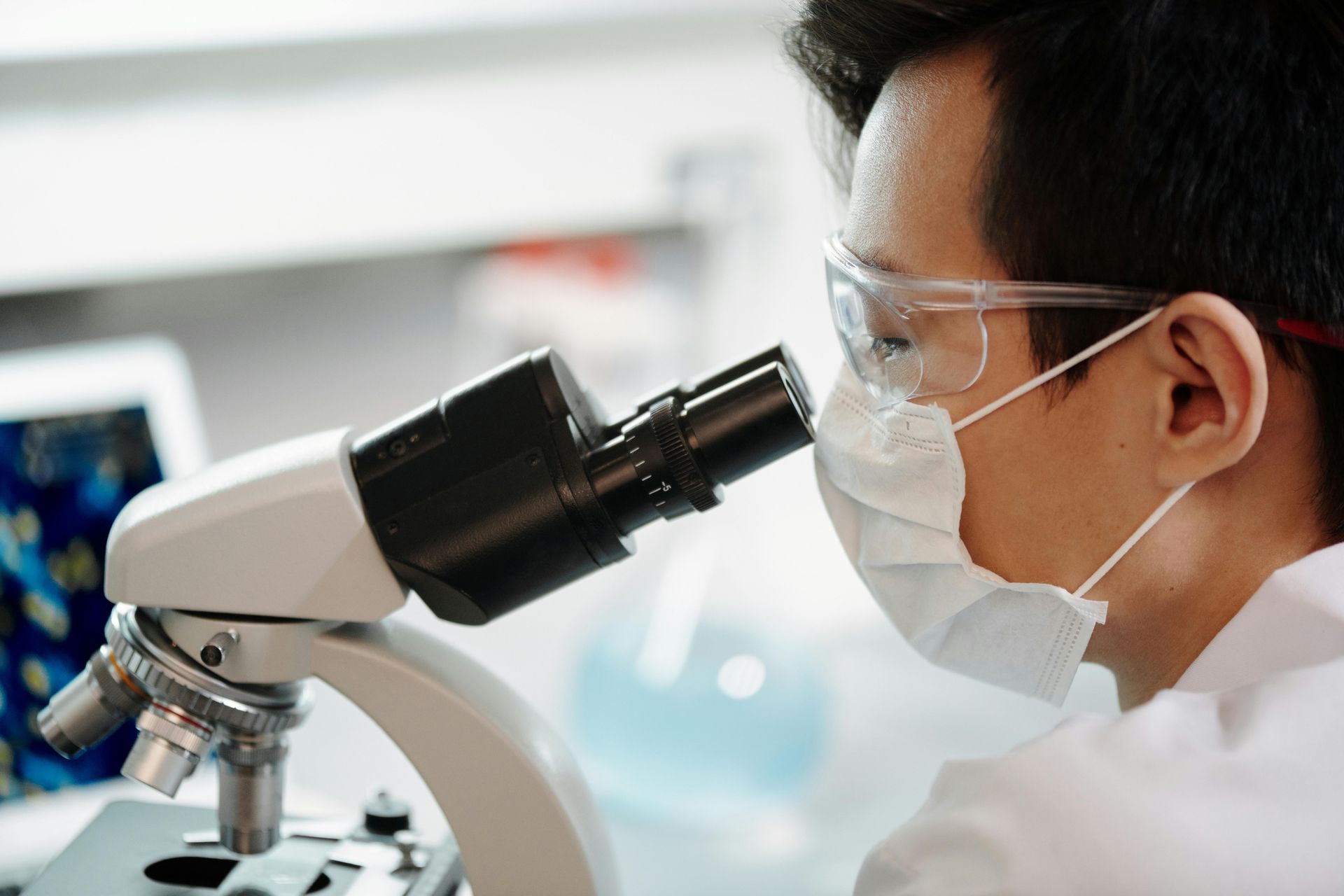The Benefits of Medical Device Compliance Certification
FDA medical device requirements must be met by any organization researching or manufacturing medical devices. The FDA’s regulations are designed to ensure end users’ safety and the efficacy of manufactured devices.

But who monitors medical device usage for safety compliance? Every organization needs highly qualified medical device compliance professionals ready to make sure all processes and guidelines are strictly adhered to.
A medical device compliance certification ensures that professionals are equipped with the skills and knowledge necessary to meet all FDA standards, protect patients, and build the manufacturer’s reputation.
Read on to learn more about why medical compliance certifications are essential and their benefits to researchers and manufacturers.
What Is Medical Device Compliance?
Medical device compliance is the practice of ensuring all medical devices meet regulatory standards set by agencies such as the FDA in the United States and the EMA in the European Union.
Complying with standards set by these agencies makes sure all medical products on the market are safe and effective. Designing, manufacturing, market release, and post-market monitoring are all regulated — and failing to comply can have severe consequences.
Additionally, compliance is an ongoing process for manufacturers and makes sure they continue to maintain high healthcare standards and ensure device safety.
Why Is Medical Device Compliance Important?
Compliance is crucial for both legal and ethical reasons. FDA medical device regulation is built around providing safe, effective, and reliable medical devices while also blocking unsafe devices from reaching end users.
Medical device compliance isn’t just about meeting legal requirements; compliance also plays a vital role in building trust in end users and creating a positive reputation for the manufacturer.
Training in the latest
FDA standards for medical devices is crucial, as devices connected to networks need to meet cybersecurity standards.
So, why is regulatory compliance important? The importance of regulatory compliance in healthcare can’t be overstated — it’s necessary to protect patients and manufacturers.
What FDA Regulation Required for Medical Device Compliance?
FDA regulations medical devices cover every aspect of medical devices. For network-connected devices, this includes strict cybersecurity measures to protect them from malicious parties.
All companies involved in researching, developing, or manufacturing medical devices need to meet strict regulations in order to keep these devices available to end users.
Some of the
FDA’s medical device regulatory compliance standards are:
- Registration and listing of devices with the FDA, including manufacturing and importers.
- Quality System Regulation (QSR), also known as 21 CFR Part 820, is a regulation that creates a framework for quality management systems to ensure consistent design, manufacturing, testing, documentation, and data handling.
- Medical Device Reporting (MDR) falls under the FDA’s 21 CFR Part 803, which regulates reporting certain types of adverse events or product problems to the FDA.
- Premarket notification, also known as 510(k), is a review process all non-exempt medical devices must undergo to demonstrate that they are safe, effective, and meet any applicable laws.
- Premarket approval (PMA) is a rigorous process that is required for some types of devices. PMA involves a thorough review of all clinical data and supporting documentation to ensure safety and efficacy.
- Labelling requirements are required, such as instructions for usage, warnings, or any other pertinent information.
- Post-market surveillance procedures to identify any issues that may arise after a device is available on the market.
- A Unique Device Identification (UDI) system must be in place for most medical devices that identify each specific device. The UDI must be in human and machine-readable form.
- High-risk devices require strict clinical trials to gather safety and effectiveness data before being brought to market.
- Strict biocompatibility testing is required to ensure that all materials used in the device will not cause adverse reactions in patients, and if allergic reactions or other sensitives may be triggered, they are disclosed.
Non-compliance with these strict regulations can result in recalls, fines, or legal action. This is why regulatory compliance is crucial to the success of researchers and manufacturers.
Why is Documentation Essential for Medical Device Regulatory Compliance?
Thoroughly documenting device compliance is a central process for strict regulatory and quality standards. Some of the reasons why documenting regulatory compliance is crucial include the following:
- Proves compliance and quality assurance; proper documentation proves that devices meet regulatory standards.
- Demonstrates risk management procedures and traceability of materials.
- Creates legal protection by showing adherence to regulated processes.
The technologies and process for proper documentation are one of the many things students learn when attending a reputable certification course.
Benefits of Medical Compliance Certification Courses
Earning a medical device regulatory compliance certification offers plenty of benefits for individuals and organizations that hire certified professionals. So, let’s explore these benefits and illustrate why certifications are so critical.
Protection Against Government Sanctions and Fines
Adhering to compliance standards is necessary to avoid the severe penalties that accompany non-compliance, which include substantial government sanctions, fines, or a complete recall. Authorities that dictate and monitor medical device regulations in the United States are:
- The Food and Drug Administration
- The Office of Inspector General
- The General Services Administration
- The Office of Foreign Assets Control
- The Drug Enforcement Administration
Be aware that these are only the federal agencies, as individual states may also regulate activities and have Medicaid policies that influence relationships with manufacturers. State and federal governments are increasingly dedicated to maintaining a strong commitment to making sure companies adhere to all regulations.
Daily workflows need to be well documented, correct actions must be taken for any compliance issues, and companies need to meet external audits. Implementing ongoing training helps avoid fines and possible sanctions for non-compliance.
Addressing Concerns More Consistently
Earning a professional certification creates procedures to address any concerns in a consistent way. Everyone involved in research and development or manufacturing can be on the same page and follow comprehensive workflows. Certifications establish these standards to create better communication and collaboration throughout the organization.
We explored why documentation is so essential earlier, and certifications establish the right processes to document critical areas necessary to prove compliance correctly. Correct documentation enables teams to identify possible issues more efficiently and implement corrective actions.
Boosting Staff and Patient Confidence
The last thing healthcare staff or patients want to hear is, “This device does not meet your organization's compliance requirements.” Ensuring compliance with regulatory requirements avoids this issue and boosts your organization’s credibility and professional expertise.
For manufacturers, requiring certification for new hires shows your staff, clients, and patients that you’re committed to providing safe and effective services. Implementing
medical device training shows that your organization is serious about regulatory compliance.
Preventing Unethical Behaviors
Unfortunately, medical negligence can occur in any organization, and it can ruin an organization's credibility. That’s why leading healthcare manufacturers place such a strong emphasis on requiring certifications to meet all FDA requirements.
Medical device compliance certification establishes the processes and procedures to detect any possible unethical behavior. Part of these processes includes creating corrective actions should any issues arise. Your organization will detect any errors, mitigate risks, and have corrective actions in place should any incidents occur.
Advancing Your Career as a Medical Professional
For medical professionals, earning a medical device compliance certification contributes to overall professional development and helps you advance in the medical field.
Compliance certification helps anyone involved in medical devices, from initial research to ongoing market monitoring. You’ll be ready to join any team and contribute to providing end users with safe and effective medical devices. Which, in turn, contributes to a better work environment and high morale.
Meet The FDA Compliance Guidelines With CfPIE's Medical Device Compliance Certification
The Center for Professional Innovation and Education (CfPIE) offers training and certifications for pharmaceutical, biotech, and medical device companies. Our medical device compliance certifications prepare graduates to protect your company from any fines or penalties for failing to meet the FDA’s requirements.
Our courses offer training designed to impart graduates with the latest training and technical aptitude to meet the FDA’s expectations.
Are you ready to provide your employees with
medical device compliance training or earn the certification yourself?
Learn more about our course or contact our teams today at 1-610-648-7550.
Blog Categories
Stay Informed
Have Questions?
You will be able to find answers to most frequently asked questions here
Since 2001 CfPIE has
Check Out Our Life Science Training Courses.
Need help finding the right life sciences training courses? We can help you make the right choice based on your company's needs.
- AMDE, PK/TK & Drug Metabolism in Drug Discovery and Development
- Advanced Topics in Biostatistics for Non-Statisticians
- Analytical Chemistry Principles for Pharmaceutical Scientists
- Analytical Method Validation for Biologics, Biopharmaceuticals and Other Therapeutic Products
- Aseptic Processing in the Manufacture of Biotech and Pharmaceutical Products
- Auditing and Qualifying Suppliers and Vendors
- Best Practices for an Effective Cleaning Validation Program
- Biostatistics for Non-Statisticians
- CMC Regulatory Compliance Strategy for Cell & Gene Therapy Medicines
- CMC Regulatory Compliance Strategy for Recombinant Proteins, Monoclonal Antibodies, & Biosimilars
- Change Control - GMP Requirements and FDA Enforcement
- Cleanroom Fundamentals - Regulation, Science, Design, Practice, Operation & Management
- Clinical Document Management: A Trial-by-Trial Compliance Approach
- Clinical Trial Project Management, Phase 1-4 Best Practices
- Comprehensive Overview of FDA Regulatory Compliance for Drug and Biotech Products
- Computer System Validation
- CRO, CDMO and Non-Clinical Vendor Management Fundamentals
- Development and Validation of Bioanalytical Assays for Biologics: Quantification (PK) and Immunogenicity Assays
- Effective Document Management for Pharma, Biotech & Medical Device
- Effective Internal and External Quality Assurance Auditing for FDA Regulated Industries
- Ethics in Research - Values for Responsible Conduct of Research
- European Regulatory Procedures - EMA & National Requirements
- FDA Inspections - What Regulators Expect and How to Prepare
- GCP Audits - Best Practices for Ensuring Compliance & Detecting Fraud and Misconduct in Clinical Trials
- GMP Training for the QC Laboratory
- Good Clinical Practices (GCP) & Risk Based Monitoring - Understanding and Implementing Current Global Requirements
- Good Laboratory Practice (GLP) for Nonclinical Laboratory Studies
- Good Manufacturing Practices Training | GMP Course
- Human Error Prevention (HEP) - Risk Factors and Strategies
- Implementing and FDA Compliant Stability Program
- Integration of Risk Management Principles and Activities into the Pharmaceutical Quality System
- Intro to Medical Device Submission - 510(s)s, PMAs & Exemptions
- Introduction to Medical Combination Products
- Introduction to Statistical Analysis of Laboratory Data
- Introduction to Vaccines - CMC Regulatory and Quality Aspects
- Laboratory Equipment Validation and Qualification
- Lyophilization Technology - Application of Scientific Principles
- Marketing & Advertising of Pharmaceutical & Medical Devices
- Medical Device Process Validation Training for Professionals
- Medical Devices: Developing Effective Post Market Surveillance and Compliant Handling Systems
- Molecular Biology Techniques - Applications in the Biotechnology and Pharmaceutical Industries
- OTC Drug and Personal Care Product GMP & FDA Regulation
- Oncology Drug Development Course - A Comprehensive Overview
- Overview of FDA Regulatory Compliance for Medical Devices
- Overview of the New EU Medical Devices Regulations: MDR, IVDR, CE Mark and Compliance, QMS Fundamentals
- Pharmaceutical Root Cause Analysis of Failures & Deviations - Developing an Effective CAPA Strategy
- Preparation of FDA Submissions and Communicating with the FDA
- Preparing the CMC Section for NDAs/INDs/CTDs
- Process Validation for Drugs and Biologics
- QbD - Product & Process Optimization using Design of Experiments
- Quality Assurance/Quality Control for Biologics and Biopharmaceuticals
- RNA Biotechnology - An Introductory Course
- Specifications for APIs & Pharmaceutical Drug Products
- Technical Writing for Pharma, Biotech and Med Devices
- The Drug Development Process from Concept to Market
- US Medical Device & Quality Systems Regulations - Design Controls & Validation
- Writing Effective SOP and Other Process Documents
ABOUT US
The Center for Professional Innovation and Education (CfPIE) provides technical training for Pharmaceutical, Biotech, Medical Device and Skin/Cosmetics professionals. CfPIE offers more than 350 class sessions annually across 80 course titles in multiple formats, such as classroom, on-site, and certification programs.
USEFUL LINKS
STAY INFORMED
Your privacy and trust are important to us. We collect your information only for operational and advisory purposes. We do not and will not sell your private information to a 3rd party. By agreeing to this policy, you are giving us permission to contact you about our services and courses.
All Rights Reserved | CfPIE Inc. | Our courses and materials are copyrighted by CfPIE, Inc. and may not be used or reproduced without the written permission of CfPIE, Inc. management. | In partnership with CCC


